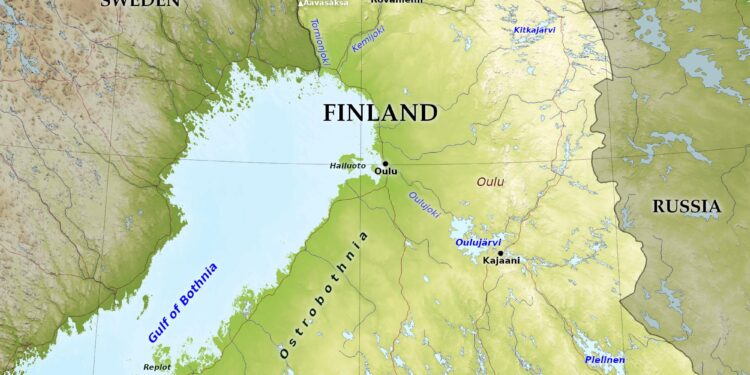Finland has officially summoned the Russian ambassador following allegations of an airspace breach by Russian aircraft, escalating tensions between the two neighboring countries. The Finnish government condemned the incident as a violation of its sovereignty and demanded a formal explanation from Moscow. This diplomatic move comes amid increasing security concerns in the region, underscoring the fragile nature of relations between Finland and Russia.
Finland Condemns Incursion as Violation of Sovereignty Demands Clarification from Moscow
Finland’s government has officially summoned the Russian ambassador following reports of an alleged unauthorized airspace violation. The Finnish Ministry of Foreign Affairs expressed serious concerns, emphasizing the incident as a direct breach of national sovereignty that cannot be overlooked. In a press statement, officials underscored the urgent need for a thorough explanation from Moscow to clarify the circumstances surrounding the airspace breach and to prevent future occurrences.
Authorities highlighted the steps Finland plans to take moving forward, underscoring the importance of diplomatic dialogue and regional security cooperation. The incident has sparked a wider discussion on air defense readiness and monitoring protocols along Finland’s eastern border. Key points raised by Finnish officials include:
- Immediate diplomatic engagement to de-escalate tensions.
- Reinforcement of border surveillance systems.
- Commitment to international law and sovereign airspace protection.
| Response Measures | Status |
|---|---|
| Summoning Russian Ambassador | Completed |
| Official Statement Released | Published |
| Enhanced Air Defense Patrols | Under Review |
Implications for Nordic Security Dynamics and NATO Relations Examined
The recent diplomatic tensions sparked by the alleged Russian airspace incursion near Finnish borders underscore a pivotal moment in Nordic security dynamics. Finland’s decisive response – summoning the Russian ambassador – reflects growing anxieties among Nordic countries about the stability of their airspace and territorial sovereignty amid escalating regional unrest. This incident is a stark reminder that the geopolitical landscape in Northern Europe remains volatile, prompting Nordic states to reevaluate intelligence sharing, surveillance capabilities, and joint defense protocols.
Amid Finland’s recent NATO membership, this event also tests the alliance’s commitment to collective defense in the region. Key implications include:
- Heightened surveillance missions along the Nordic-Russian border;
- Increased NATO patrols in the Baltic Sea to deter similar violations;
- Strengthened communication channels between NATO and Nordic national security agencies;
- Potential shifts in defense spending priorities to address emerging airspace vulnerabilities.
| Aspect | Pre-Incursion | Post-Incursion Outlook |
|---|---|---|
| Air Patrols | Routine, limited scope | Expanded, multi-national coordination |
| Diplomatic Engagements | Periodic contacts | Increased scrutiny, urgent summoning protocols |
| Regional Threat Perception | Moderate concern | Elevated alert status |
Calls for Diplomatic De-escalation and Strengthened Airspace Monitoring Measures
In response to the alleged incursion of Russian military aircraft into Finnish airspace, Finnish officials have urgently called for a phase of diplomatic restraint. Authorities emphasized the importance of dialogue and transparency to prevent further misunderstanding between the two neighboring countries. The Finnish Ministry of Foreign Affairs stressed that maintaining open communication channels remains critical to avoiding unintended escalation, particularly amidst already heightened regional tensions. Diplomatic efforts are now focused on reaffirming mutual respect for sovereignty and international norms.
Simultaneously, Finland is bolstering its airspace monitoring infrastructure to ensure rapid detection and response to any future breaches. This includes enhanced radar coverage, increased aerial patrols, and closer cooperation with international partners. The government highlighted several key enhancement measures:
- Deployment of upgraded radar systems along sensitive border regions
- Expanded coordination with NATO partners for joint surveillance operations
- Implementation of real-time information sharing protocols for air traffic control
| Measure | Purpose | Status |
|---|---|---|
| Radar System Upgrade | Improved detection range | In progress |
| Joint Surveillance Ops | Enhanced airspace control | Planned for Q3 2024 |
| Info Sharing Protocols | Faster threat identification | Implemented |
Concluding Remarks
The diplomatic tensions between Finland and Russia underscore the complexities of regional security in Northern Europe. As Helsinki takes a firm stance by summoning the Russian ambassador over the alleged airspace violation, the situation remains a focal point for international observers monitoring the evolving dynamics along the EU’s eastern border. Further developments are likely to influence both bilateral relations and broader security policies in the region.
















